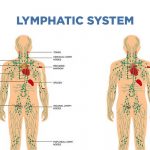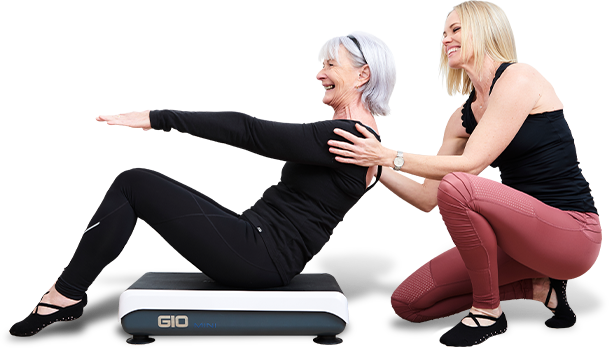Whole Body Vibration – How Does It Really Work?

With so many health and fitness products on the market today, we are inundated with a variety of different options – some that deliver on their promises and some that don’t. While whole body vibration is an ancient modality in some respects, it is a new concept to most people, including medical professionals. Although many people believe that it’s just another fad, the research proves otherwise. Still, the question remains – how does it really work?
When we think of traditional methods of exercise, we envision going to the gym. There are many pieces of equipment from which to choose, all of which are effective in their own ways. Traditional resistance training targets specific muscle groups individually and involves performing repetitions at a certain weight until the muscles fatigue. This principle requires the addition of extra mass to the body to make the muscles contract. Although this approach is certainly effective, it is not always practical. Considering the prevalence of a sedentary lifestyle in modern society, it is not uncommon for people to feel overwhelmed when it comes to breaking the cycle of inactivity.
While many individuals manage to maintain a gym routine, there are infinitely more who don’t. Some people have a difficult time tolerating resistance training due to joint and muscle pain or poor endurance and may not be inclined to exercise in the gym due to the nature of their limitations. Another factor to acknowledge is that not everyone is comfortable in a gym environment as it can be intimidating. For others, their reasons for avoiding the gym may include limited time, financial constraints and perhaps the biggest one – lack of motivation. Whole body vibration provides an excellent solution to address all of these issues as it’s highly effective – not to mention, it’s a time-saver and it’s fun!
As more people are learning about the benefits of this awesome modality, they may be surprised to find out that whole body vibration is actually another form of resistance training. Let’s consider the physics behind resistance training. In doing so, it is pertinent to reference this equation: force = mass x acceleration. When we exercise using weighted equipment, we are utilizing the mass component of the equation – but what about the other part? Whole body vibration employs the acceleration component of the equation, which means that the vibration creates resistance as a result of which the muscles are activated. In order to gain an appreciation of how it works, it is useful to examine the science behind its mechanisms.
Research has provided evidence to support the hypothesis that whole body vibration works through reflex activity and stimulation of the muscle spindles. Muscle spindles are small organs within the muscle tissue which act as receptors to a stretch stimulus. When a muscle is stretched quickly, a signal is transmitted to the motor nerves in the spinal cord. In turn, a message is sent to the brain which then causes the muscles to contract. The rapid, widespread muscle contractions that are elicited facilitate a very efficient workout. The outcomes of some studies have even bolstered the claim that whole body vibration is superior to traditional resistance training. Whether an individual is unfit or athletic, whole body vibration is an ideal option.
Now that we’ve covered the basics of how whole body vibration works from a scientific standpoint, let’s focus on its many positive effects on health. While many individuals are inclined to use it purely for fitness purposes, it provides a vast array of health benefits. There has been over twenty years of research demonstrating the ways in which it improves the operation of different body systems. Aside from activating the musculoskeletal system, whole body vibration also stimulates the circulatory system, the lymphatic system, the endocrine system and the neurological system. This unique modality supports the body’s function as a cohesive unit as it affects so many systems simultaneously. In my many years as a physical therapist, I have not encountered any other method of exercise that works in such an integral manner.
As a clinician who has a great appreciation for the limitations that patients face with regard to exercise and as someone who has experienced health issues that have interfered with my mobility, I can attest to the ease of use and the wide range of applications offered by whole body vibration. Many individuals struggle to improve or maintain their fitness level due to pain, fatigue and de-conditioning. When contending with these challenges, the prospect of initiating an exercise routine is often daunting. Where does one start? The beauty of whole body vibration is that it can be used for brief periods of time and still yield significant results. It can be implemented as a stand-alone activity or as an adjunct to a comprehensive routine at all levels of fitness. Regardless of your goals, whole body vibration will undoubtedly unlock the power within to help you achieve them.
References:
Effects of Whole Body Vibration on Motor Unit Recruitment and Threshold. Journal of Applied Physiology. Pollock et al, Feb 2012.
EMG Activity During Whole Body Vibration: Motion Artifacts or Stretch Reflexes? European Journal of Applied Physiology 110. Ritzmann e al, 2010.
Strength Increase after Whole-Body Vibration Training Compared with Resistance Training. Medicine & Science in Sports & Exercise. Delecluse et al, Jan 2003.
Whole-Body Vibration Training. IDEA Fitness Journal. Chantal A. Vella, PhD., Jan 2005.







